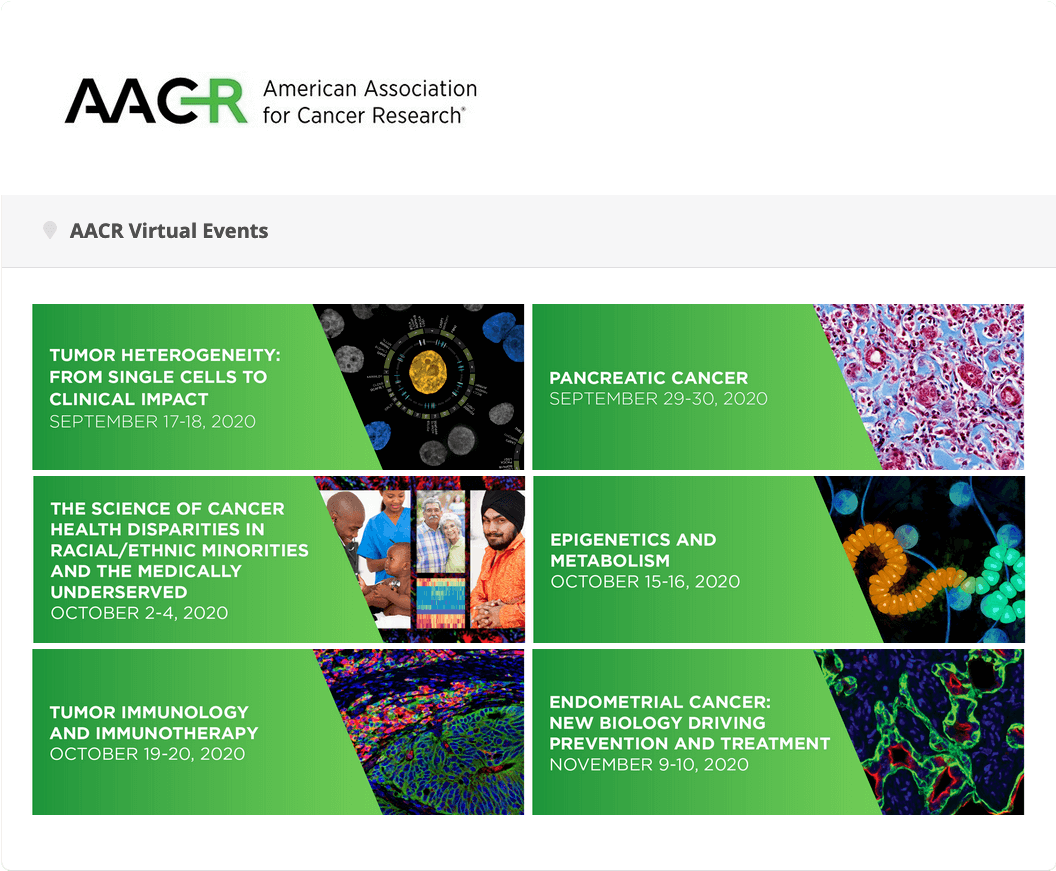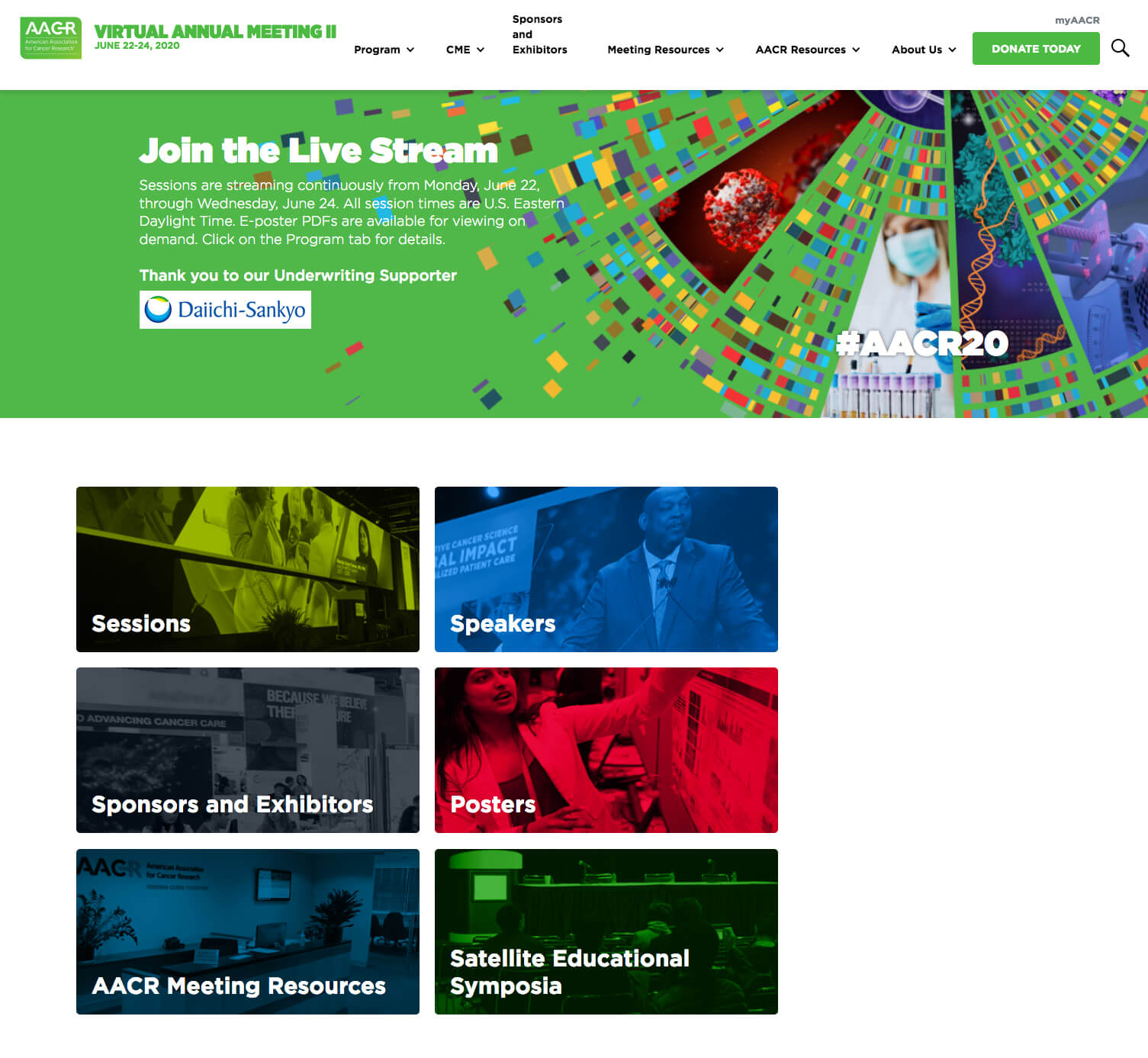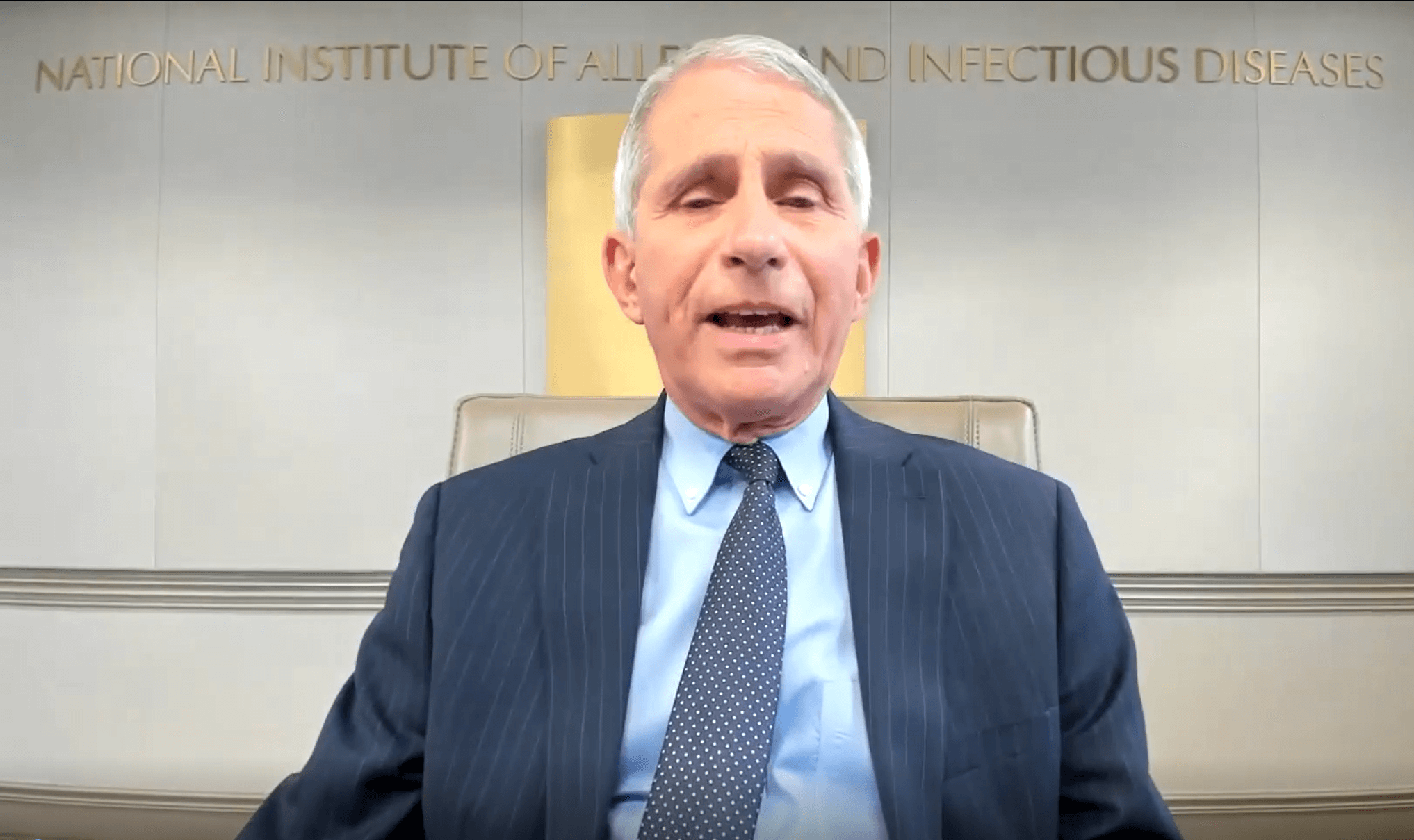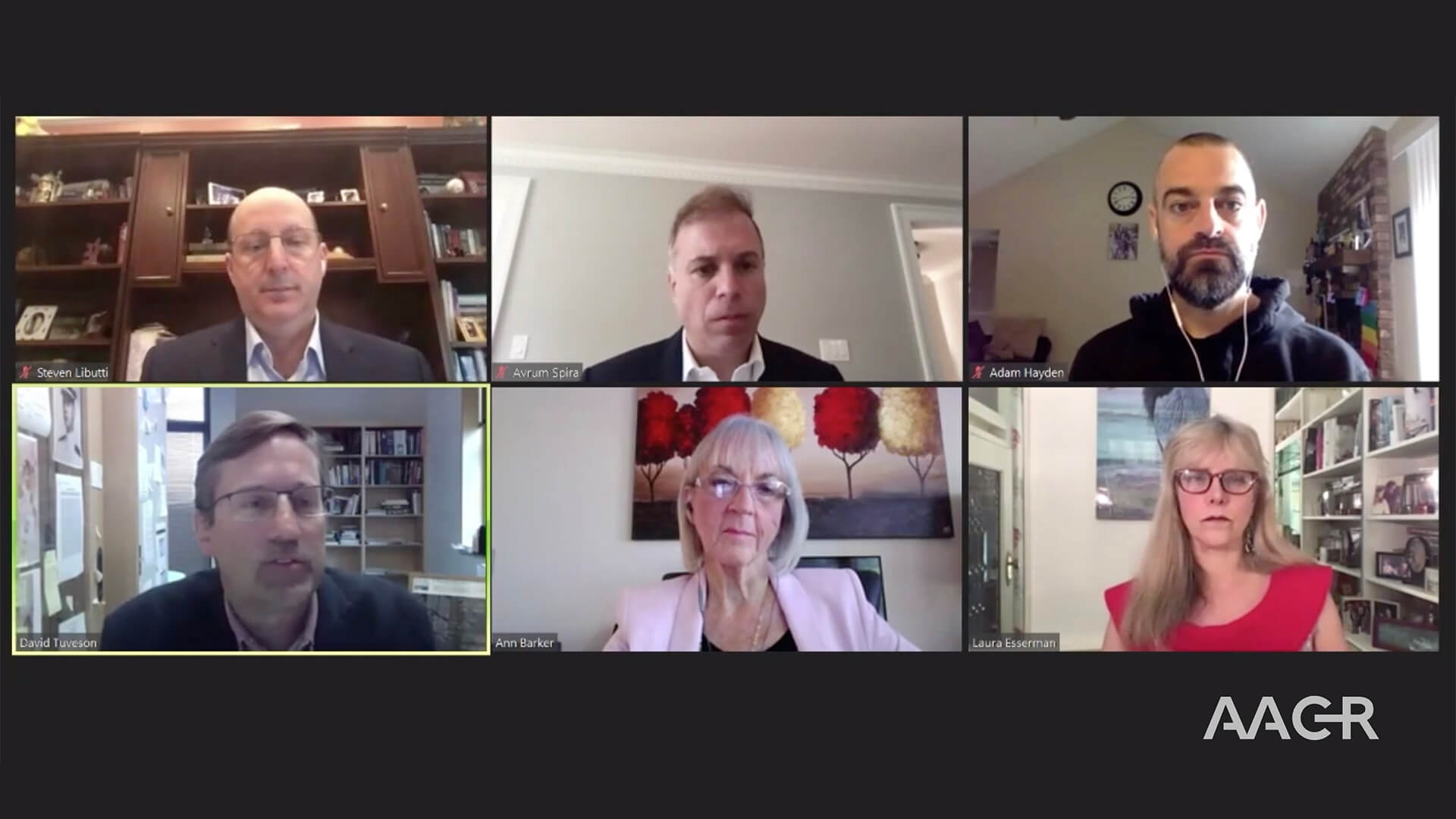

As the novel coronavirus (COVID-19) outbreak grew into a global pandemic in the early months of the year, national and local governments restricted travel and nonessential gatherings in an effort to slow the spread of the disease. As cancer centers and hospitals placed limitations on visits, cancer patients and clinicians were forced to weigh the benefits of continuing therapy against the risks of exposure to the virus. Further, the closure of laboratories worldwide disrupted the efforts of cancer scientists—especially young investigators—to develop the next generation of lifesaving cancer treatments.
Since 1907, the AACR’s priority has been to prevent and cure all cancers. When confronted with the COVID-19 pandemic in 2020, our organization pursued dual priorities: mitigating the upheaval within the cancer community while also working to eliminate the cause of that upheaval. Faced with existential challenges, the AACR leadership, staff, and membership responded by innovating across several fronts:




